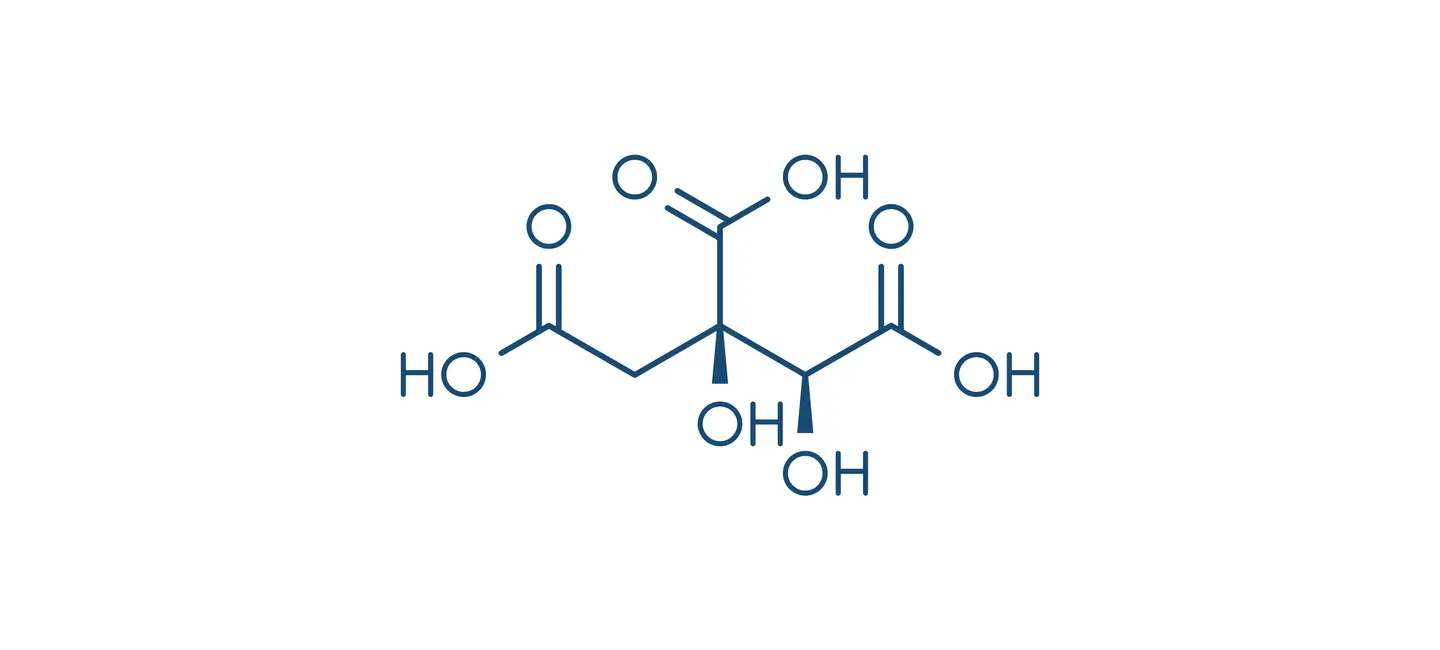
Hydroxycitric acid is a chemical that's similar to citric acid. It is found in fruit rinds of several species of Garcinia. It can also be found in the flowers of hibiscus.
Hydroxycitric acid is most commonly used to improve athletic performance and for weight loss, but there is no good scientific evidence to support these or other uses.
Is It Effective?
Natural Medicines rates effectiveness based on scientific evidence according to the following scale: Effective, Likely Effective, Possibly Effective, Possibly Ineffective, Likely Ineffective, Ineffective, and Insufficient Evidence to Rate.
- Athletic performance. Taking hydroxycitric acid for up to 5 days might increase how long untrained women or elite athletes are able to exercise. But this research is limited. The long-term effect of hydroxycitric acid on athletic performance is unclear.
- Obesity. The effect of hydroxycitric acid on weight loss is unclear. One small study shows that taking hydroxycitric acid for 8 weeks may improve weight loss. But other research shows that taking hydroxycitric acid for 2 weeks doesn't improve weight loss.
- High cholesterol.
- Diabetes.
- Other conditions.
More evidence is needed to rate the effectiveness of hydroxycitric acid for these uses.
Is it Safe?
Hydroxycitric acid might improve weight loss by preventing fat storage and controlling appetite. It might improve exercise performance by limiting the use of stored energy in the muscles, which seems to prevent fatigue.
When taken by mouth: Hydroxycitric acid is POSSIBLY SAFE for most people when taken by mouth for 12 weeks or less. It may cause nausea, stomach discomfort, or headache. There isn't enough reliable information to know if hydroxycitric acid is safe when used long-term.
Special Precautions & Warnings:
Pregnancy and breast-feeding: There isn't enough reliable information to know if hydroxycitric acid is safe to use when pregnant or breast-feeding. Stay on the safe side and avoid use.
Bleeding disorders: There is concern that hydroxycitric acid might slow blood clotting. This might increase the risk of bleeding or bruising in people with bleeding disorders.
Diabetes: Hydroxycitric acid might reduce blood sugar. Monitor blood sugar levels closely. Doses of conventional antidiabetes medications may need to be adjusted.
Surgery: Hydroxycitric acid might affect blood sugar levels and slow blood clotting. This might make it more difficult to control blood sugar and bleeding during and after surgery. Stop taking hydroxycitric acid at least 2 weeks before a scheduled surgery.
There are no known interactions with medications. Before taking this product, talk with your health professional if you take any medications.
Herbs and supplements that might lower blood sugar: Hydroxycitric acid might lower blood sugar levels. Using hydroxycitric acid along with other natural products that have this same effect might make blood sugar drop too low. Some of these products are devil's claw, fenugreek, guar gum, Panax ginseng, Siberian ginseng, and others.
Herbs and supplements that might slow blood clotting: Using hydroxycitric acid with other herbs that can slow blood clotting might increase the risk of bleeding in some people. These other herbs include angelica, clove, danshen, garlic, ginger, ginkgo, Panax ginseng, and others.
There are no known interactions with foods.
The appropriate dose of hydroxycitric acid depends on several factors such as the user's age, health, and several other conditions. At this time, there is not enough scientific information to determine an appropriate range of doses for hydroxycitric acid. Keep in mind that natural products are not always necessarily safe and dosages can be important. Be sure to follow relevant directions on product labels and consult your pharmacist or physician or other healthcare professional before using.
1,2-Dihydroxypropane-1,2,3-tricarboxylic acid, HCA, Hydroxycitrate.
Natural Medicines disclaims any responsibility related to medical consequences of using any medical product. Effort is made to ensure that the information contained in this monograph is accurate at the time it was published. Consumers and medical professionals who consult this monograph are cautioned that any medical or product related decision is the sole responsibility of the consumer and/or the health care professional. A legal License Agreement sets limitations on downloading, storing, or printing content from this Database. Except for any possible exceptions written into your License Agreement, no reproduction of this monograph or any content from this Database is permitted without written permission from the publisher. Unlawful to download, store, or distribute content from this site.
For the latest comprehensive data on this and every other natural medicine, health professionals should consult the Professional Version of the Natural Medicines. It is fully referenced and updated daily.
© Copyright 1995-2020. Therapeutic Research Faculty, publishers of Natural Medicines, Prescriber's Letter, and Pharmacist's Letter. All rights reserved.
